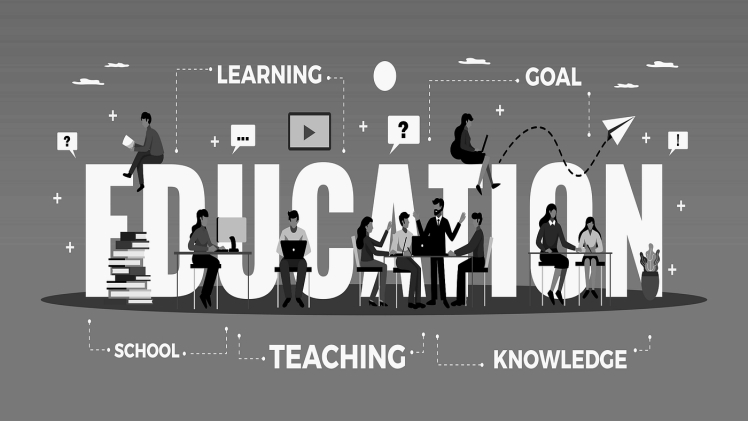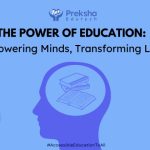Education is not merely the imparting of knowledge; it is the key that unlocks the door to a world of possibilities, enabling individuals to reach their full potential and contribute meaningfully to society. As a fundamental pillar of personal and societal development, education plays a pivotal role in shaping minds, fostering critical thinking, and building the foundation for a brighter future.
Foundations of Learning:
At its core, education is about more than just acquiring facts and figures; it is a holistic process that encompasses intellectual, social, and emotional growth. Early childhood education lays the groundwork for cognitive development, instilling essential skills such as communication, collaboration, and problem-solving. These formative years create the building blocks upon which future educational endeavors rest.
Primary and secondary education further expands this foundation, introducing a diverse range of subjects and disciplines. Mathematics, science, literature, and the arts offer a well-rounded curriculum that not only imparts knowledge but also encourages curiosity and a love of learning. A robust education system nurtures creativity, resilience, and adaptability, qualities essential for navigating the challenges of the modern world.
Beyond Academics:
Education extends beyond the confines of textbooks and classrooms. It is a dynamic process that prepares individuals for life beyond academic pursuits. Co-curricular activities, such as sports, arts, and community service, play a crucial role in developing soft skills like leadership, teamwork, and empathy. These activities contribute to the holistic development of students, equipping them with the tools they need to thrive in various aspects of life.
Moreover, education serves as a bridge between different cultures and perspectives. Exposure to diverse ideas and experiences fosters a global mindset, promoting understanding and tolerance. In an interconnected world, the ability to navigate cultural differences and communicate effectively across borders is an invaluable skill cultivated through education.
Empowering Individuals:
Education is a powerful tool for empowerment, offering individuals the means to overcome obstacles and break the chains of generational poverty. It is the great equalizer, providing opportunities for socio-economic mobility and dismantling barriers to success. By imparting skills and knowledge, education opens doors to better employment prospects, empowering individuals to secure a brighter future for themselves and their communities.
Moreover, education cultivates a sense of agency and self-efficacy. When individuals are equipped with the tools to think critically and make informed decisions, they become active participants in their own lives. This empowerment extends beyond the personal realm, contributing to the creation of informed and engaged citizens who actively contribute to the betterment of society.
The Role of Technology:
In the 21st century, technology has transformed the landscape of education. Digital platforms, online resources, and e-learning have expanded access to education, breaking down geographical barriers and providing learning opportunities to individuals around the world. The integration of technology in education not only enhances the delivery of content but also prepares students for the digital age, where technological literacy is increasingly crucial.
The use of educational technology, including interactive learning platforms, virtual classrooms, and educational apps, enables personalized learning experiences. Adaptive learning systems cater to individual learning styles, ensuring that students can progress at their own pace. Additionally, technology facilitates collaboration and communication, connecting students and educators globally and fostering a sense of a global learning community.
Lifelong Learning:
Education is not confined to a specific phase of life; it is a lifelong journey. In an era of rapid technological advancements and evolving industries, the concept of lifelong learning has gained prominence. Continuous education and upskilling are essential for staying relevant in a dynamic job market.
The ability to adapt to new technologies, acquire new skills, and embrace change is crucial for personal and professional growth. Lifelong learning not only enhances career prospects but also enriches lives by fostering intellectual curiosity and a passion for discovery. It is an investment in oneself that pays dividends throughout a person’s lifetime.
Challenges and Opportunities:
While the transformative power of education is evident, it is essential to acknowledge the challenges that persist. Disparities in access to quality education, both within and between countries, remain a significant concern. Economic, social, and gender-based inequalities can limit educational opportunities, perpetuating cycles of poverty and exclusion.
Addressing these challenges requires a concerted effort from governments, educators, and communities. Investment in education infrastructure, teacher training, and the development of inclusive policies are essential steps toward creating a more equitable educational landscape. Embracing innovative approaches, such as open educational resources and alternative learning models, can also expand access to education and bridge existing gaps.
Conclusion:
Education stands as a beacon of hope, illuminating the path to a brighter and more equitable future. From the foundational years of early childhood education to the ongoing pursuit of knowledge throughout life, education shapes individuals and societies. It is a catalyst for personal empowerment, societal progress, and global understanding.
As we navigate the complexities of the 21st century, investing in education is not just a moral imperative; it is a strategic decision that paves the way for innovation, resilience, and sustainable development. By embracing the transformative power of education, we empower individuals to realize their potential, break down barriers, and contribute to the collective advancement of humanity.





